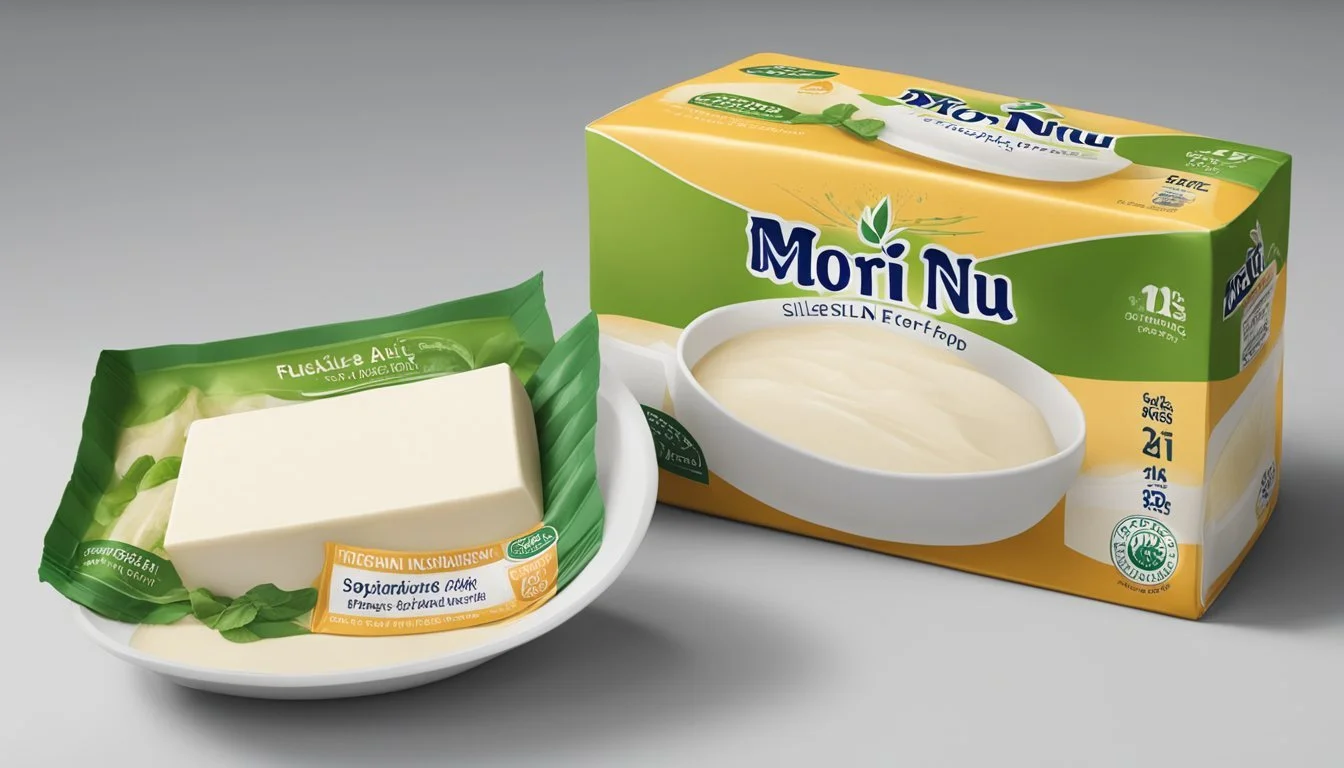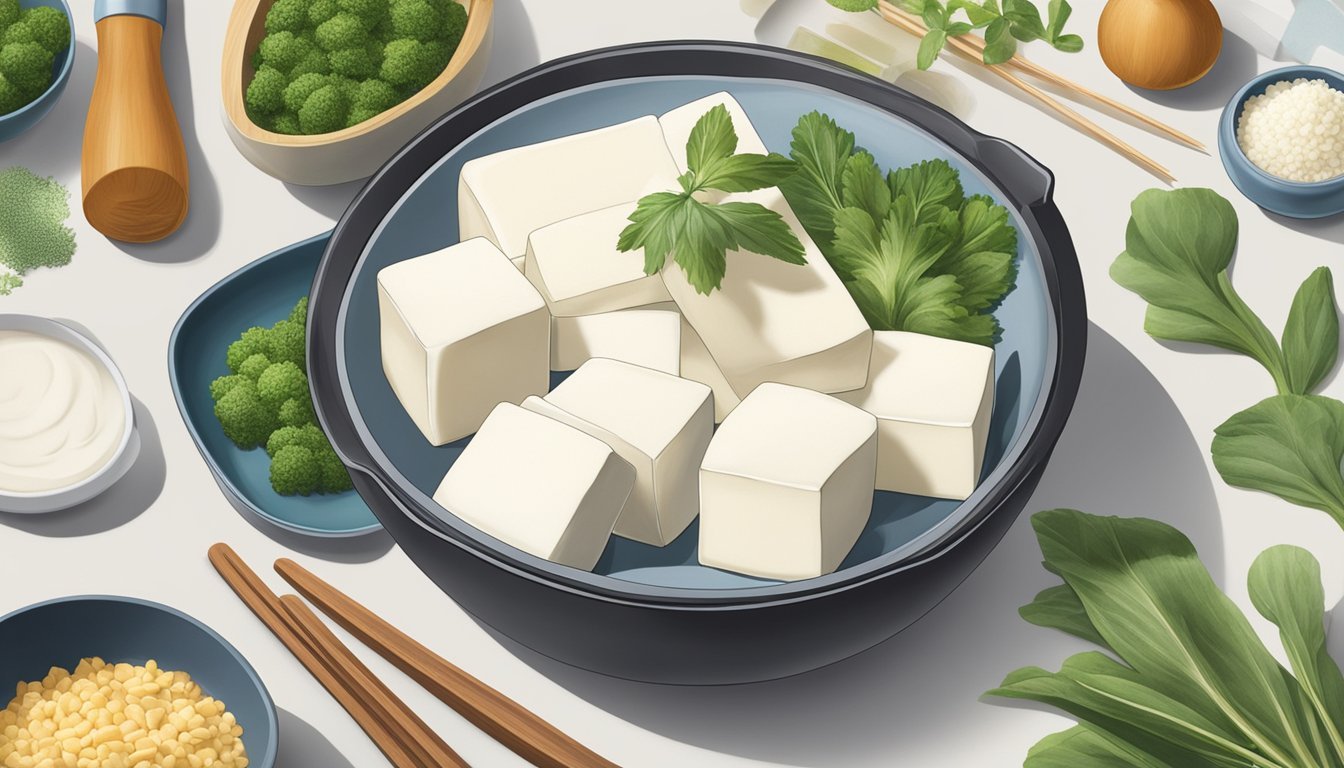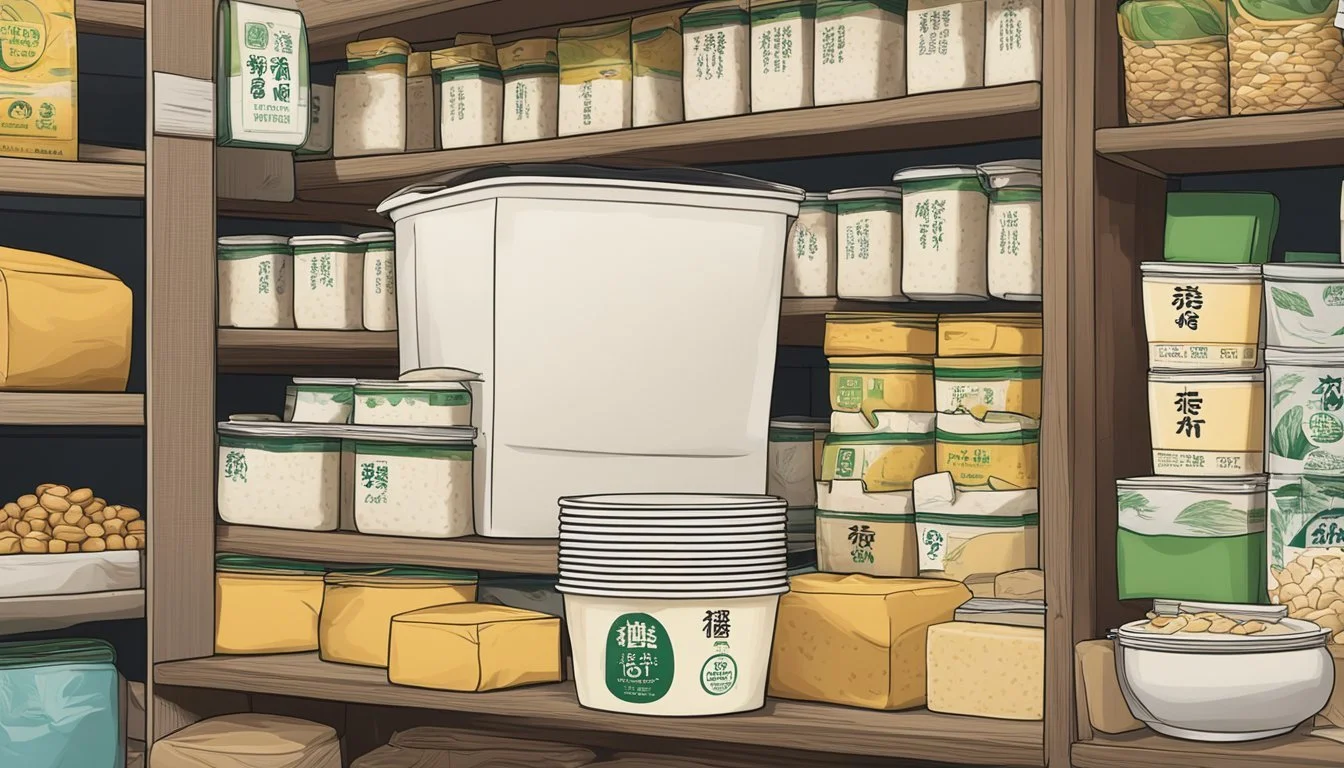How Long Does Mori-Nu Silken Tofu Last?
Shelf Life and Storage Tips
Mori-Nu Silken Tofu stands out for its longevity compared to typical refrigerated tofu, with shelf-stable packaging that significantly extends its usability. The product's aseptic packaging ensures that it can last for up to a year without refrigeration, as long as the package remains unopened. This is because the tofu is sealed away from light and air, factors that can accelerate spoilage in food products. The "best used by" date stamped on the package indicates the end of this one-year shelf life, providing a clear guideline for consumers.
Once the package is opened, however, the storage requirements change. Mori-Nu Silken Tofu needs to be refrigerated and treated similarly to other perishable foods. Refrigeration at 40 degrees Fahrenheit or lower is recommended and the tofu should be consumed within four days to ensure freshness and prevent potential foodborne illness. It's important to handle tofu correctly after opening, as improper storage can lead to spoilage.
In terms of its composition, Mori-Nu Silken Tofu is made from soybeans and carries the benefits of soy, which include being a good source of protein. Offering a different texture from cotton tofu, silken tofu is often used in a variety of dishes, from smoothies to dips and desserts. Understanding the storage and shelf life of Mori-Nu Silken Tofu allows consumers to safely enjoy its versatility in their cuisine.
Understanding Tofu
Tofu, derived from soy milk, is a versatile ingredient rich in protein and varying in texture. The process of its production and the diverse ways it is embraced in cuisines worldwide underline its nutritional and culinary significance.
Tofu Basics
Tofu is made from soy milk that is curdled with a coagulant such as nigari (magnesium chloride), calcium sulfate, or calcium chloride. The resulting curds are pressed into blocks and can vary in firmness.
Nutritional Profile
Tofu is a low-calorie food containing high levels of plant-based protein, essential amino acids, and is often rich in calcium and iron. A serving of tofu typically provides a good balance of protein, fat, and calories.
Different Textures
Tofu textures range from silken, which is smooth and creamy, to extra firm which holds its shape well and is suitable for grilling. Soft tofu is often used in soups, while firm tofu is versatile for various cooking methods.
Tofu Production
To produce tofu, soymilk is coagulated to form curds, which are then pressed into blocks. The amount of liquid extracted determines the firmness of the tofu. The Mori-Nu brand's silken tofu production is renowned for its longevity and shelf-stability.
Culinary Uses
Tofu's bland taste makes it a sponge for flavors, sauces, and marinades. It is used in a wide range of dishes, including stews, stir-fries, dips, smoothies, and desserts.
Tofu and Health
Vegetarians and vegans often incorporate tofu into their diets as a substantial protein source. It contains no cholesterol and negligible amounts of saturated fat, making it a heart-friendly option, especially for those on a vegetarian diet.
Tofu Varieties in Cuisine
Different cultures utilize tofu in unique ways. Japanese cuisine favors silken tofu for its delicate texture in miso soups and desserts. Firm tofu is often used in Chinese-style stir-fries. The brand Mori-Nu creates a silken tofu that's widely recognized for its rich, creamy texture ideal for blending into smoothies or incorporating into vegetarian and vegan recipes.
Silken Tofu Specifics
This section details the nuanced elements of silken tofu, particularly Mori-Nu's brand, covering its characteristics, storage guidelines, dietary significance, and versatile culinary uses.
Characteristics of Silken Tofu
Silken tofu is known for its smooth, creamy texture, setting it apart from other tofu varieties. It offers a rich and delicate flavor, making it an ideal element in a range of dishes.
Mori-Nu Silken Tofu
Mori-Nu Silken Tofu is a low-fat, dairy-free source of vegetable protein. Packaged in aseptic containers, this product is gluten-free and made with non-GMO soybeans. It's favored for its long shelf life and does not require refrigeration until opened.
Storing Silken Tofu
Proper storage of silken tofu is key to maintaining its quality:
Before opening: Keep in a cool, dark place away from direct light and air.
After opening: Store in the refrigerator within an airtight container and consume within 3-5 days for best quality.
Consumption Ideas
Silken tofu's creamy quality makes it a flexible ingredient. Here are some ideas:
Salad dressings and dips: Blends smoothly for a luscious base
Pudding or cream: A dairy-free substitute that offers a rich, velvety texture
Silken Tofu in Vegan Diet
As a substitute for animal protein, silken tofu is a staple in the vegan diet. It's a versatile, gluten-free option used in a variety of recipes, from smoothies to stir-fries, offering a luxurious creamy consistency.
Shelf Life and Spoilage
Mori-Nu silken tofu offers an impressively long shelf life due to its unique packaging, but it's still susceptible to spoilage if not handled properly. Understanding the factors that affect its shelf life, proper storage recommendations, and the signs of spoilage will ensure safe consumption.
Factors Affecting Shelf Life
The shelf life of Mori-Nu silken tofu is influenced by several factors, including:
Packaging: Airtight packaging extends shelf life by minimizing exposure to light, air, and contaminants.
Storage conditions: Temperature and humidity levels can accelerate spoilage.
Product integrity: Any compromise to the packaging can increase the risk of bacterial growth.
Storage Recommendations
To maximize the shelf life of Mori-Nu silken tofu:
Before opening:
Store in a cool, dry place away from direct sunlight and heat.
No refrigeration is required until the package is opened.
After opening:
Refrigerate promptly in an airtight container.
Consume within 3-5 days for optimal freshness and safety.
Signs of Spoilage
Be vigilant for these indicators of spoiled tofu:
Odor: A sour or unpleasant smell.
Texture: A slimy surface signifies spoilage.
Color: Discoloration, such as greyish hues, indicates the presence of mold or bacteria.
Food Safety Concerns
To prevent food poisoning from spoiled tofu:
Always check the expiration date before use.
Discard tofu if it exhibits signs of spoilage.
Be aware that bacterial growth can occur without obvious changes in smell and appearance.
Understand that spoiled tofu can lead to foodborne illnesses due to harmful bacteria or mold.
Preservation Techniques
To ensure the longevity and freshness of Mori-Nu Silken Tofu, proper storage techniques play a crucial role. These methods help extend the shelf life and maintain the quality of the tofu, whether it's being frozen, refrigerated, or stored in another way.
Freezing Tofu
Silken tofu can be kept for longer periods by freezing it. To freeze tofu, one should:
Drain any excess water from the tofu.
Wrap the tofu in plastic wrap or place it inside an airtight container.
Store it in the freezer at 0°F (-18°C) or below.
Freezing can change the texture of tofu, making it more suitable for some recipes like soups and stir-frys. It is advisable to use frozen tofu within a few months and thaw it in the refrigerator before use.
Extending Shelf Life
Keeping silken tofu in its original packaging until the use date can help maintain freshness. For refrigerated tofu:
Store in the refrigerator at 40°F or below.
Check and adhere to the expiration date on the package.
An unopened package of shelf-stable tofu has a longer shelf life, typically lasting 6 months to a year from the production date.
Alternative Storage Methods
For an opened package of silken tofu, one can use the following approach:
Submerge leftover tofu in clean, cold water.
Place in a container and refrigerate.
This method can preserve the tofu's freshness for two to three days. Water should be changed daily to maintain the best quality.
Reusing Leftover Tofu
When silken tofu has been opened and not all of it is used, the remaining portion can be incorporated into various dishes. To maximize the use of leftover tofu, one can:
Keep the tofu submerged in water and refrigerated.
Use it within four days for optimal freshness.
Leftover tofu is versatile and can be added to recipes including scrambles, smoothies, or stir-fry, offering a nutritious addition to these meals.
Cooking with Tofu
Tofu, particularly silken varieties like Mori-Nu, can be used in an array of dishes from starters to desserts, providing a versatile canvas for flavors. This section focuses on the foundational aspects of cooking with tofu—from preparation to execution.
Preparing Tofu for Cooking
Before cooking, draining tofu is a critical step to ensure it absorbs flavor and achieves the desired texture. Pressing tofu serves to extract excess water, which is especially important for firm types that need to hold shape in cooking. For silken tofu, this step is usually unnecessary due to its delicate structure.
Drain: Remove tofu from packaging and gently pour off any excess liquid.
Press: For firmer varieties, wrap in a clean kitchen towel and set a weighted object on top for about 30 minutes.
Cooking Techniques
Cooking tofu can be approached through various techniques to suit different recipes.
Baking: Coated with seasoning, tofu can be baked for a crispy outer layer. Bake at 400°F for 25-30 minutes.
Microwave: Quick and convenient, especially for silken tofu, microwaving can warm tofu for dips or sauces.
Stir-fry: Cubed firm tofu stir-fried on high heat yields a satisfying exterior crispness and can replace meat in dishes like chili and stir-fried vegetables.
Breaded Tofu: For a crispy, crunchy texture, tofu can be breaded with breadcrumbs or batter before frying or baking.
Recipe Innovation
Tofu's mild flavor welcomes experimentation with various seasonings and marinades. It can adopt the characteristics of savory dishes like fish filets when prepared with the right herbs and spices, or blend into smoothies and desserts for added protein without altering the taste.
Marinating: Soak tofu in a mixture of sauces and spices to infuse flavors. Silken tofu absorbs delicate flavors well for subtler dishes.
Desserts: Pureed silken tofu can be used in puddings or mousse for a creamy texture that's lower in fat than cream-based counterparts.
Accompaniments and Substitutions
Versatile in dietary contexts, tofu can replace ingredients like cottage cheese (how long does cottage cheese last?), eggs, or meat. It excels in health-conscious dishes, acting as a dairy substitute in smoothies, dips, and more.
Cottage Cheese Substitute: Crumbled tofu can mock the texture of cottage cheese in salads and spreads.
Dip Ingredient: Blend silken tofu to a smooth consistency for use in various dip recipes.
Non-Dairy Options: In smoothies and desserts, tofu offers an alternative to milk or yogurt for those with dietary restrictions.
Health Aspects of Tofu
Tofu is a versatile, nutrient-dense food that offers a variety of health benefits, particularly due to its high-quality protein content, role in weight management, and suitability for various special diets.
Protein Content and Quality
Tofu is a valuable source of plant-based protein, with about 8 grams of protein per 100 gram serving. The protein in tofu is considered a complete protein, containing all nine essential amino acids necessary for human health. Mori-Nu Silken Tofu, a common variety, typically provides a significant portion of the recommended dietary intake of protein, which benefits vegetarians and vegans seeking animal-free protein sources.
Tofu and Weight Management
As a low-calorie and low-fat food option, tofu can play an essential role in weight management diets. A 100 gram serving of tofu contains approximately 70 calories, with minimal saturated fat. The high protein content also aids in satiety, which can help individuals reduce overall calorie intake and better manage their weight.
Tofu for Special Diets
Tofu is an accommodating food choice for various special diets. It is naturally gluten-free and cholesterol-free, making it a suitable option for those with celiac disease or cholesterol management concerns. Moreover, it's a staple in vegetarian and vegan diets as an organic, vegetable protein source. Some brands of tofu, including Mori-Nu, offer organic options to cater to those preferring foods made without synthetic pesticides or fertilizers.
Conclusion
Mori-Nu Silken Tofu is recognized for its extended shelf-life, facilitated by unique packaging that ensures freshness.
Shelf Life: Typically, it lasts for one year past the production date, as indicated by the "best used by" label on the packaging.
Storage Conditions: Keeping it unopened and under proper storage conditions is essential for maintaining its quality.
After Opening: Once opened, the tofu should be refrigerated at 40 degrees Fahrenheit or below and consumed within four days.
Freezing Option: Silken tofu can also be frozen, ideally at 0°F (-18°C) or lower, extending its usability for up to three months.
When purchasing, customers should:
Verify the "best used by" date.
Choose packages without damage.
Store promptly and appropriately after purchase.
Adherence to these guidelines ensures the tofu's quality and safety for consumption.








